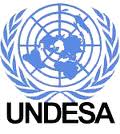Supporting the Design of Sustainable Development Policies with Policy Modelling Tools
The UNDESA/DPAD is currently building capacities that will support developing countries in the formulation of sustainable development policies. The project "Supporting the Design of Sustainable Development Policies with Policy Modelling Tools 2014-2015" creates capacity in countries to use tools that together provide government officials with a clear and robust policy analysis framework. It focuses on tools that can address issues related to macroeconomics (economy-wide models), microeconomics (microsimulation methodologies), and the energy and environment dimensions (systems dynamics models). The project is currently implemented in three pilot countries – Bolivia, Nicaragua and Uganda.
Developing countries confront the challenge of designing coherent policies that can simultaneously accelerate growth, reduce poverty, preserve and improve the environment, and adapt to climate change. To successfully achieve these objectives, countries need a cohesive and coherent policy strategy that is able to integrate a large number of development objectives across many economic, social, and environmental sectors.
To assist countries in the design of sustainable development policies, UNDESA draws from its extensive experience in capacity development for policy analysis and from state of the art knowledge in development assessment (see inset). The tools offered and the capacity to use them for national policy making provide countries with a comprehensive and unified framework to assess the potential achievements, trade-offs and synergies of a variety of policies. Once officials are trained in the use and interpretation of the models, policymakers will be able to compare policy choices, simulate the effect of changing conditions, contrast financing strategies, and have a better understanding of the main obstacles to their country's development goals. The pilot phase of the project will provide UNDESA with valuable experience to extend the project to other developing countries, many of whom have already started to formulate sustainable development policies.
For the current project, UNDESA/DPAD has formed partnerships with Sweden's Royal Institute of Technology (KTH); with UNDP country offices and Regional Bureau for Africa; directly with ministries in participating countries; and with UNDESA divisions of Sustainable Development and Statistics. The project will be implemented over a period of 15 to 24 months and includes four major components all of which actively incorporate government officials from respective countries.
The four components are:
- Diagnoses of the key sustainable development challenges of the country, identification of national policy priorities, and definition of policy issues to be addressed by the project.
- Assessment of data and information availability, validation and organization of data in a format conducive to analysis and modelling.
- Modelling building activities, i.e. definition of data to be used and underlying assumptions, parameter definition, main elements of the economy, energy and environment systems to be incorporated.
- Training of government officials in economic, energy, social and environmental ministries as well as other relevant government agencies. The training mainly takes place at the introductory and intermediate levels but also includes over-email assistance on advanced topics and procedures. Through the project, UNDESA expects to train a total of between 12 and 24 government officials in the different tools and at different levels of capacity.
At the end of the project countries will have:
- A compilation of available data relevant for sustainable development policies, organized and harmonized to the extent possible
- A country-adapted and owned suite of tools including an economy-wide model, an energy systems dynamic model, a microsimulation routine and a hybrid soft-link between the economy and energy models.[i]The modelling will use open source software (OSeMOSYS,CLEWs,R) . User friendly interfaces will be provided to countries based on Microsoft Office suite.
- A team of government officials that have acquired the needed skills to assemble data for modelling, design, run and interpret simulations in the economic and energy models, and communicate results to policy makers.
- A set of policy notes prepared by country government officials, under the supervision of the project expert team, addressing the policy priorities of the country; and, depending on the national interest, other relevant technical and policy publications might be produced by the project.
Funding Organization

